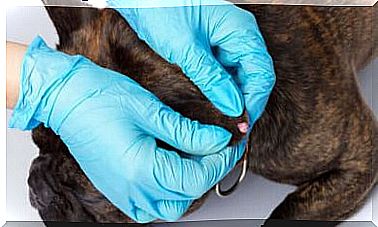Let’s Discover The Anti-parasitic Tablets For Dogs

Internal and external pesticides are essential to offer adequate preventive measure to your best friends. Nowadays there are many collars, sprays and tablets against parasites that affect dogs, so it is important to know how to choose them with confidence and conscience.
Below, we will list the main pesticides available on the market. Furthermore, we remind you that thorough hygiene is also essential to prevent parasites.
The pesticide treatment must be accompanied by periodic control of the skin and coat of the animal, which must be brushed periodically. In summer, long-haired dogs can suffer from the heat, with the consequent proliferation of ectoparasites, so it is essential to take them to a toilet.
Parasites and the health risk of dogs
The parasites that can affect dogs fall into two major sub-categories: endoparasites and ectoparasites. Endoparasites, as their name indicates, live inside the animal’s organism. Typically, they settle in the intestinal tract of dogs, where they find many nutrients.
Endoparasites can have a flat body, like worms and tapeworms, or cylindrical, like mites. The first symptoms manifest themselves through gastrointestinal disturbances, such as diarrhea or vomiting. If they are not eliminated as soon as possible they can cause anemia, intestinal obstructions and even neurological alterations.
Ectoparasites, on the other hand, affect the skin that lines the body of dogs. The most common are fleas, ticks, lice and mites. Mosquitoes can also be considered temporary or opportunistic parasites.

These microorganisms are carriers of numerous and serious diseases. Flea saliva can cause intense itching, allergic reactions and skin rashes. Mosquitoes, on the other hand, are the main cause of leishmaniasis and filariasis.
Ticks can cause itching and dermatitis, as well as transmit diseases such as ehrlichiosis and babeosis. A tick infestation not treated quickly can be fatal for the animal.
Antiparasitic tablets and their health risks
Before choosing a specific product or opting for a particular brand, it is important to understand how different pesticides work. Antiparasitic tablets, for example, are administered orally, and then descend into the digestive system of dogs. The recommended doses vary according to the weight, age and health of each animal.
Pipettes, collars and sprays are taken transdermally, reaching the bloodstream after being absorbed by the skin. If you choose one of these methods, you need to be sure they get rid of the parasites, not just keep them away.
Many opt for chewable parasite tablets to eliminate and prevent ectoparasites.
The active ingredient in this product, (Afoxolaner) is absorbed by the digestive system, and then reaches the bloodstream. After that, it spreads through the tissues of the body, causing the ectoparasites to die through an overexcitation of their nervous system.

How often should pesticides be given to dogs?
Puppies should start internal parasite treatment during their first few weeks of life. After a few months, you can start using external pesticides, specific to their age.
For adult dogs, anti-parasite tablets should be given every 3 to 6 months. The frequency of application of the preventive treatment against ectoparasites will depend on the extent of the product used.
Some chewable tablets offer protection ranging from 90 to 120 days, while pipettes can be applied every one to two months.
The effectiveness of flea and tick collars varies between 3 and 8 months, depending on the manufacturer. Among the most recommended is the Scalibor, a collar that repels ticks, fleas, lice and mosquitoes.
Always follow the instructions of a veterinarian, who will help you choose the most suitable products and news on the market.








